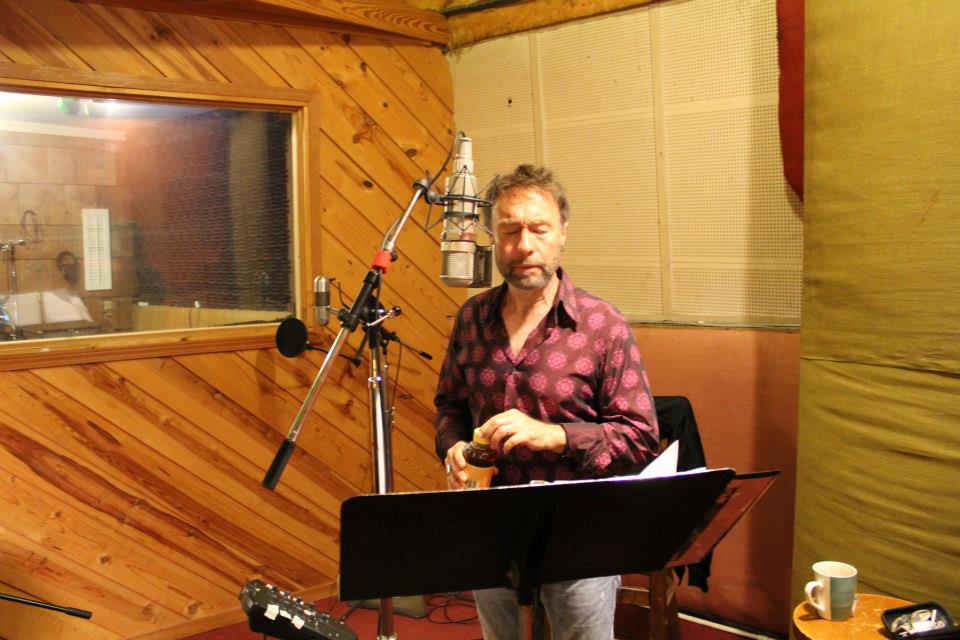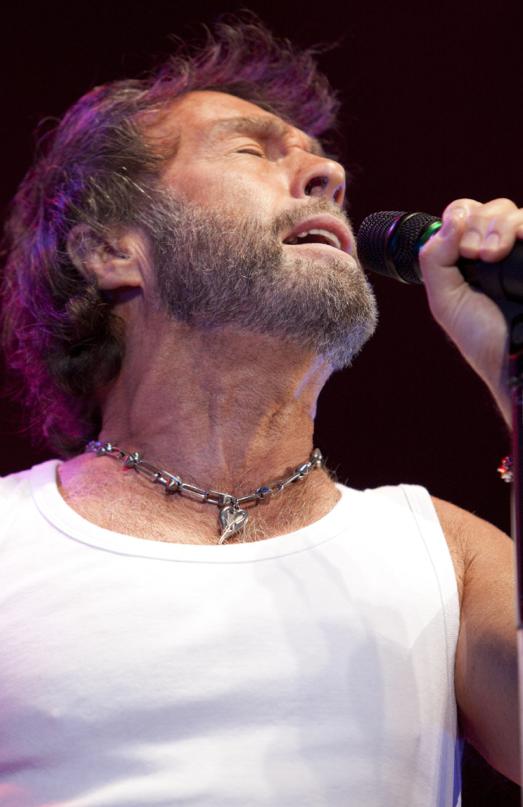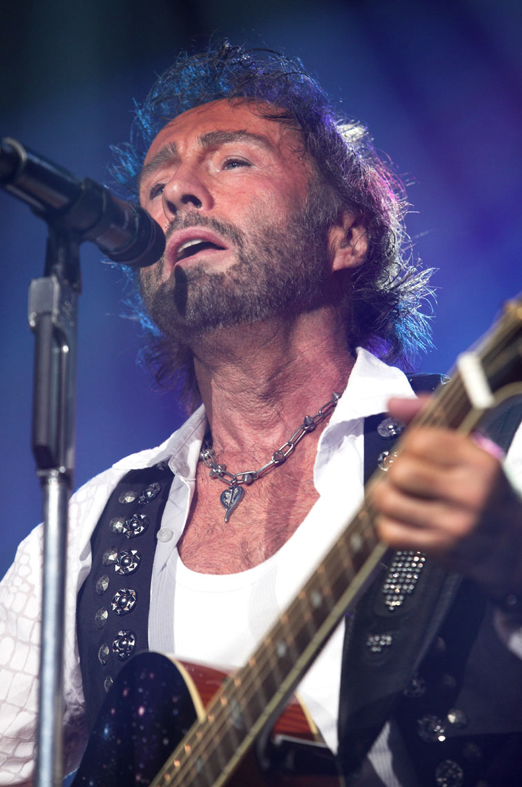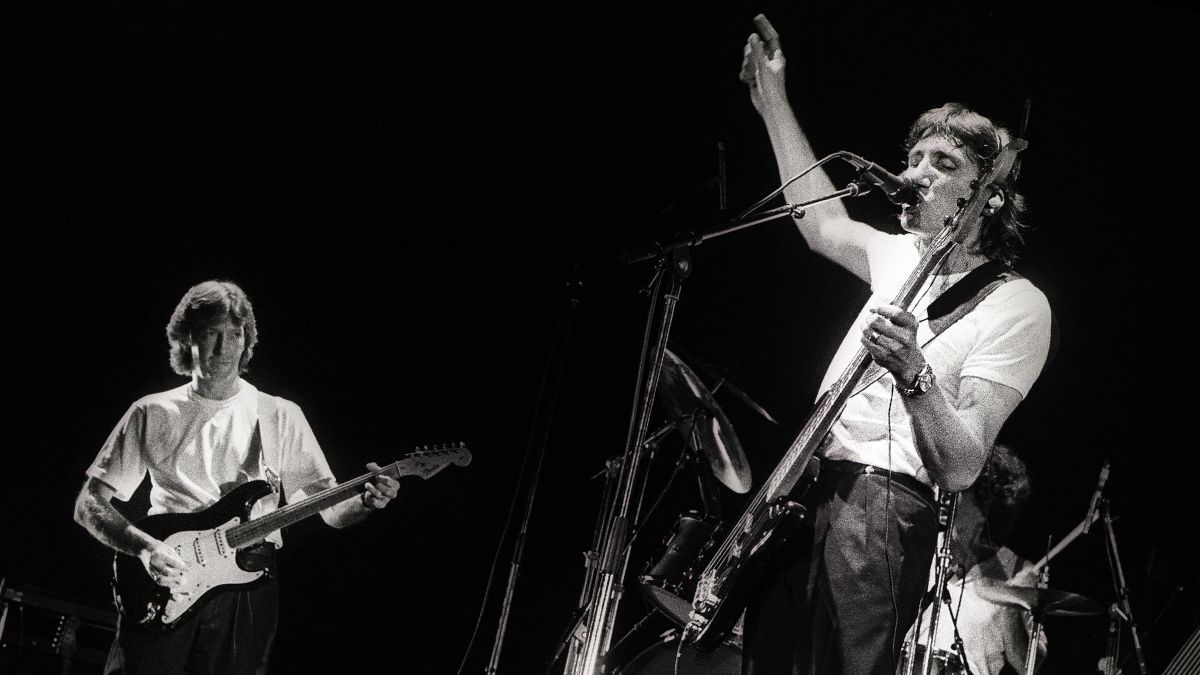Interview: Bad Company's Paul Rodgers Discusses Free Guitarist Paul Kossoff, The 40 Tour and New Material
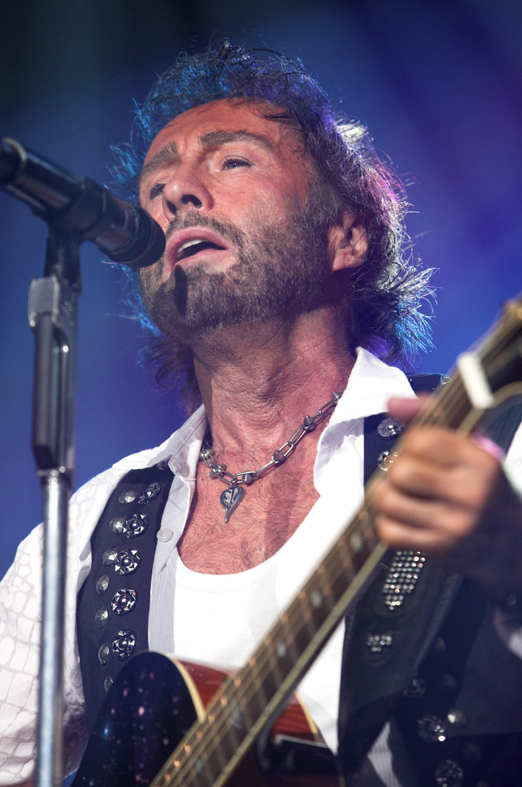
Lynyrd Skynyrd and Bad Company — both of whom are celebrating their 40th anniversaries in 2013 — recently teamed up for a co-headling US tour.
The 40 Tour, which kicked off June 20 in Auburn, Washington, draws to a close July 27 in Bethel, New York.
“The Skynyrds and I go back to the '70s and the days and nights at the Hyatt House on Sunset in L.A. aka the Riot House,” Rodgers said. ”In the '90s the band introduced me to my wife, Cynthia, and that’s why I am so damned happy and healthy these years.”
When we spoke to Rodgers before the tour, he was particularly thrilled to be catching up with his old friends. "It’s going to be an exceptional tour," he said. "It will be great to be back with my old bandmates playing these songs again.”
We recently caught up with Rodgers, who discussed the tour, his charities, Bad Company and much more. Check out our entire conversation below. For information on The 40 Tour, check out badcompany.com.
GUITAR WORLD: What can fans expect from Bad Company on this tour? Will there be any jams with the guys from Skynyrd?
Well, what I’m working on right now is our set list. I’m digging deeper into the songs we have available and I’m putting an exciting set together. I hope it’s exciting, anyway. We want to come out kicking! I think a set has to have light and shade and dynamics and certain elements — like a sense of intimacy at some point where the band and the audience come together. Where the crowd feels like they’re a part of what’s going on. We will put all of the elements together and hope for the best. I don’t know if we’ll be jamming with Skynyrd, though. We might have to be focusing on our individual sets. But in the past we’ve toured with other bands and they have came out and jammed with us, so who knows?
All the latest guitar news, interviews, lessons, reviews, deals and more, direct to your inbox!
Animal-themed charities are near and dear to your heart. Why is that, and how can fans help out with some of these causes?
My wife really is the instigator of that, and I enjoy it too. She loves all animals. She will not see an animal be mistreated. We were down in Memphis, where I was recording, and there was a stray dog she rescued and found a home for.
We are very involved in the Willows Sanctuary for Animals. They take all animals in — horses, pigs, sheep, anything unwanted. They recently had a lamb that was pulled out of a flooded river. We had heard they were in desperate trouble and they were about to close down due to their government funding being cut. So we stepped in and did a concert for them and raised a bunch of funds and kept them going. What’s cool is that they’ve now been approached by a company that makes windmill turbines; in exchange for putting some turbines on their property, they will now have all the funding that they will need. Brian May also is really helping out a great deal with the charity.
People can visit willowsanimals.com if they wish to help out. They can sponsor an animal or help in a number of ways.
Your new song, “With Our Love,” is doing well on radio. Can people expect more new material like this in the near future?
That’s great that it’s doing good. I haven’t checked, actually; I’ve been in Germany. But yes, that’s an example of one of the songs I’ve been working on with a friend of mine, Perry Margouleff, who has an analog studio in New York. We’ve been writing songs together for the past couple of years. He’s been sending demos and I’ve been dealing with the lyrics.
We’ve been going back and forth, and we had that track “With Our Love” pretty much finished. So we figured we’d finish it and put it out and we made it so that all the proceeds will go to the animal causes. So that song is in the vein of where we are at with that. We’ll hopefully be releasing something next year with that.
Here are a few questions from readers. Rich asks, "How did you come across [guitarist] Paul Kossoff? How did you approach your vocal delivery and manner of phrasing when playing with Kossoff specifically?"
Wow, that’s a great question. I met Paul Kossoff for the first time when I was playing in the back of a pub room in Finsbury Park in London in 1967. It was kind of a blues thing going on, and he came up and said, “I’d like to have a jam.” So he came up and jammed with me and I just loved his playing right from the start. We had been listening to the same people — Albert King, B.B. King and a lot of Elmore James. We had a love of the great blues players and we just naturally flowed together.
There was a kind of sense of breathing naturally with the music, and it was so great. When I would sing something, he would respond with the guitar and it was just such a natural chemistry. We decided we had to put a band together right there on the spot.
Jeanne asks, "If you could compare the music industry now with the way it was 20 years ago, what would you say are the biggest changes in terms of new bands trying to break out?
I think it’s always been tough for new bands. It might be tougher now. There are just so many people making music out there. I’ve always promoted the idea that everybody needs to make music. I think the more music there is in the world, the better, but it does make it highly competitive.
Something that comes to mind is that technology has completely exploded since we kicked off in the '70s. How it is now compared to then is beyond anything we could’ve dreamed up in our wildest imaginations. It has good and bad elements. One good thing is that the communication all around the world is fantastic. It’s great that we can instantly communicate. But one of the things in the studio that I find is that the industry is using too much technology. You can get to the point where you mix the balls out of the thing by overproducing it.
Now you can actually correct everything to an insane degree. Auto-tune things, you can correct wrong beats and all that, but a lot of the slightly out-of-tune and out-of-beat stuff can really be a part of the spirit of the music. A lot of those early blues records and soul records were pretty much live. It was what it was, and they had goofs and mistakes, but it still kept its charm. We have to remember to keep the feel. It’s so important.
It’s so tempting when you’re in the studio to fix a little teeny mistake, but when I listen back now to my early records, there are all kinds of goofs, and I think, “Holy smokes, how did we let that one go?” But no one ever complained. I never heard anyone say, “You made a mistake in the second bar on the second chorus” or whatever. As long as the feel was there and the overall sound touched people and moved them, that’s what we cared about. So we have to remember that the groove and the feel are so important.
Vykki asks, "What do you do to keep your voice in amazing shape? What’s the secret?
I just keep doing it. I enjoy what I do and I just try to stay vocally in shape by doing different things all the time. For instance, I just came back from Germany and I did a 20-show tour over there with a 50-piece orchestra. They orchestrated some of my songs; stuff like “Shooting Star," “Wishing Well" and “Feel Like Makin’ Love." It was very challenging and very interesting. So I do different things. I also went to Memphis and sang soul music recently — and, like, with Queen. Queen was very different; it keeps me fresh, excited and challenged. That’s a big part of it.
You’ve played with everyone, including Jeff Beck, Brian May, Jimmy Page, and more. Is there a particular guitarist you truly enjoyed working with? Someone with whom you feel you made your best work?
I enjoyed playing with Joe Bonamassa in New York. We did that for a DVD last year. He’s fantastic, a real blues guy.
I must say, though, that I’ve enjoyed working with everybody. Everybody’s been great, but I really loved being in Memphis recently playing with Al Green's band at the Royal studio. The studio hasn’t changed since the '60s. It’s still dusty around the edges and it’s still funky and has a really great sound. It’s almost like as the evening wears on, the place seems to warm up and the spirit seems to generate.
We were just laying tracks down left and right, everything from Sam & Dave tracks to Otis Redding tracks, the Temptations, etc. We focused on Stax records material, and I was in heaven. It was paradise because with these guys, you could snap your fingers and they could just play anything you could name and play it amazingly with the brass and everything! It felt great, like I was standing in Otis Redding’s shoes. So that is my current favorite thing [laughs].
What new artists out there, if any, would you really love to work with?
Adele. I love her. I think she has just got it going on. There’s a real great feel to what she does. I loved Amy Winehouse, too, I must say. I think as an artist and a singer she was awesome, absolutely fantastic. That’s what inspires me, is that there are people who can still really turn it up and make music that gets to you. Makes you stop in your tracks and say, “Wow." Makes you feel it.
Back in the day, did you have any idea Bad Company would have the impact they've had?
We did — and we didn’t. When we first started out, it was very organic. When we did the first album, we were just a bunch of guys writing songs and playing music we loved. We wanted to record it and get out and play. We were very fortunate that Peter Grant and Led Zeppelin took an interest in us. They got behind us and gave it to the world and everybody heard it.
We were pretty knocked out with the reaction we got, and it was the fact that it was very easy to identify with. We identified with it, it was real simple and we played it from the heart. I think people were receiving it in the heart too because our intentions were so clear.
After we did the first album, it was like, “Wow, what did we do again?" And then we tried to write the songs to live up to that to some extent, and I think we did. We came up with “Feel Like Makin’ Love," “Rock ‘N’ Roll Fantasy,” and now we were established in a way. Now we had to deliver, so it was a different way of looking at it. “Simple Man” was a really cool song too. We were always very much true to ourselves in terms of the music. That was very key to the character of Bad Company.
Dave T. asks, "Who influenced you? Who are your favorite singers?"
I have so many! Otis Redding comes straight to mind, the Temptations, the Four Tops, Sam Moore, Sam & Dave, Aretha Franklin, Elmore James, B.B. King, Albert King, Wilson Pickett, Muddy Waters and so many blues and soul singers. Rod Stewart and Elton John are also great. I could go on and on.
The Live in Glasgow DVD looks incredible. What do you remember from that show; anything new or special?
It was a great tour throughout. We played in Newcastle the night before and it was absolutely wonderful. You could cut the atmosphere with a knife. I wanted to take that show home and put it on the mantelpiece, it was so great. So was the Glasgow show. The vibe, the fans and the energy were incredible. And then I played in Chichester for the Willows Animal Sanctuary, and I played only Free songs. Free was very beloved in England, so it was very special also.
I heard you once worked with Paul McCartney. Is that true?
Not exactly. I’ve yet to meet Sir Paul, but I did do a song that they wanted to record, and it’s in the can. I did “Let Me Roll It." They called me up and asked, “Would you like to sing on this?” and I said, “Sure." I always liked that song, so I recorded it in Los Angeles. d I’m waiting to hear what’s happening with that, so we’ll see.
You’re considered one of the all-time best singers by guys like Eric Clapton, Ozzy Osbourne, Brian May, Paul Stanley, Sam Moore and more. What would you like to be remembered for?
For my music, I guess. For me it’s always been about the music. I’m not really a showbiz type of guy. Show is not really the thing for me. I admire people that it is part of their thing, but for me it’s all about the music. For me, the show is secondary. The connection you make with the audience is everything.
Dave Reffett is a Berklee College of Music graduate and has worked with some of the best players in rock and metal. He is an instructor at (and the head of) the Hard Rock and Heavy Metal department at The Real School of Music in the metro Boston area. He also is a master clinician and a highly-in-demand private guitar teacher. He teaches lessons in person and worldwide via Skype. As an artist and performer, he is working on some soon-to-be revealed high-profile projects with A-list players in rock and metal. In 2009, he formed the musical project Shredding The Envelope and released the critically acclaimed album The Call Of The Flames. Dave also is an official artist endorsee for companies like Seymour Duncan, Gibson, Eminence and Esoterik Guitars, which in 2011 released a Dave Reffett signature model guitar, the DR-1. Dave has worked in the past at Sanctuary Records and Virgin Records, where he promoting acts like The Rolling Stones, Janet Jackson, Korn and Meat Loaf.
